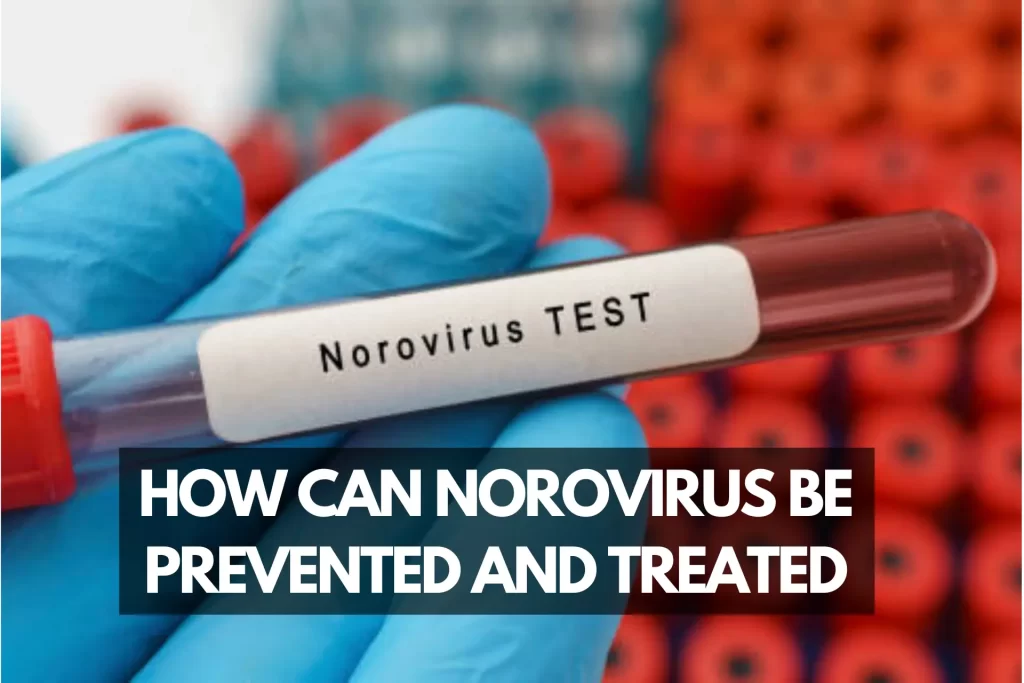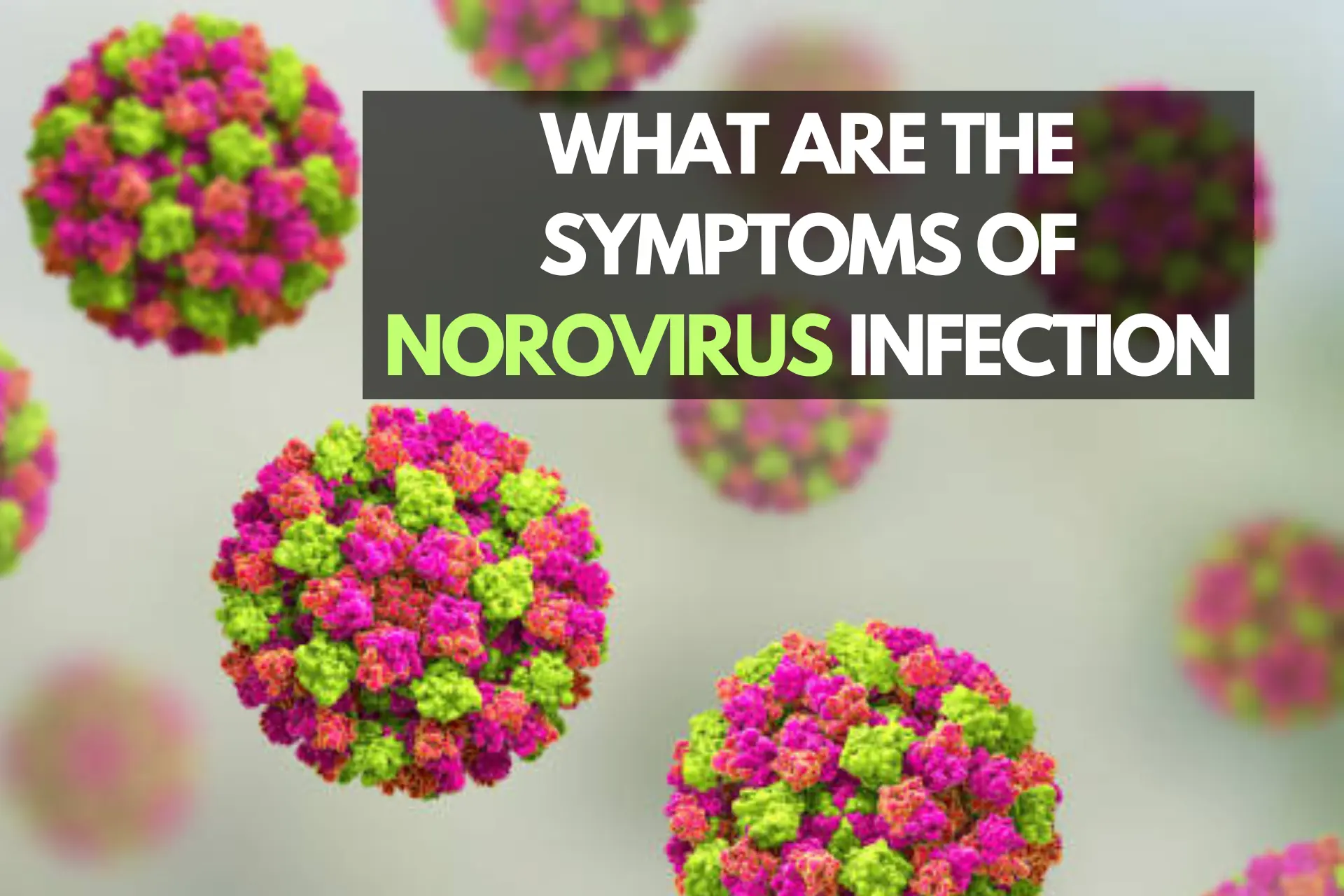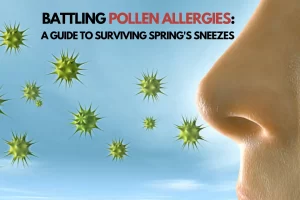Symptoms of Norovirus Infection
Symptoms of Norovirus Infection: Norovirus, often referred to as the winter vomiting bug, is a highly contagious virus that causes gastroenteritis in people of all ages. This notorious pathogen is known for its ability to spread rapidly in closed environments such as schools, cruise ships, and nursing homes. Understanding the characteristics, symptoms, transmission, and prevention of norovirus is crucial in combating its impact on public health.
Table of Contents
What is Norovirus and How is it Transmitted?
Norovirus, also known as the stomach bug, is a highly contagious virus that causes gastroenteritis, leading to symptoms like diarrhea, vomiting, and stomach pain.
This virus spreads easily through contaminated food, surfaces, or direct contact with infected individuals. The transmission of norovirus occurs when tiny particles of feces or vomit containing the virus enter a person’s mouth.
It only takes a few particles to cause infection, making norovirus highly contagious.
The virus can spread through various means, including direct contact with infected individuals, sharing food or utensils with them, consuming contaminated food or liquids, and touching surfaces contaminated with the virus.
Norovirus can also be transmitted through recreational or drinking water that has been contaminated. The virus can survive on surfaces for days or weeks, making it crucial to practice proper hand hygiene and disinfection to prevent its spread.
Preventing norovirus infections involves practicing good hand hygiene by washing hands frequently with soap and water, especially after using the toilet or changing diapers.
It is important to wash fruits and vegetables thoroughly, cook seafood properly, and avoid preparing food for others while sick. Additionally, staying hydrated and seeking medical attention if dehydration occurs are essential steps in managing norovirus infections.
Norovirus outbreaks are common in various settings such as healthcare facilities, restaurants, schools, and cruise ships due to its highly contagious nature.
While there is no specific medication or vaccine for norovirus, taking preventive measures like frequent handwashing, disinfecting surfaces, and avoiding contaminated food sources can help reduce the risk of infection.
By understanding how norovirus spreads and implementing proper hygiene practices, individuals can protect themselves and others from this contagious stomach bug.
Symptoms of Norovirus Infection?
Norovirus infections are characterized by a range of symptoms that can vary in severity. Common symptoms of norovirus infection include:
- Diarrhea
- Vomiting
- Nausea
- Stomach pain
- Fever
- Headache
- Body aches
These symptoms typically appear within 12 to 48 hours after exposure to the virus and can last for 1 to 3 days.
Norovirus causes inflammation of the stomach and intestines, leading to acute gastroenteritis. Individuals infected with norovirus may experience frequent episodes of vomiting and diarrhea, which can result in dehydration, especially in young children, older adults, and individuals with underlying health conditions.
In addition to the primary symptoms mentioned above, individuals infected with norovirus may also experience:
- Low-grade fever
- Chills
- Muscle aches
- Fatigue
It is important to note that most symptoms of norovirus infection are self-limiting, with individuals typically recovering within a few days.
However, it is crucial to manage symptoms effectively to prevent dehydration, particularly in vulnerable populations such as children and older adults.
Seeking medical attention if dehydration occurs and ensuring adequate fluid intake are essential steps in managing norovirus infections
How Long Do The Symptoms of Norovirus Last?
The symptoms of Norovirus infection typically last for a short duration, with most healthy individuals experiencing symptoms for 1 to 3 days. However, in some cases, the virus can persist in the intestines for weeks or even months, leading to lingering inflammatory bowel issues.
Symptoms of Norovirus usually start appearing 12 to 48 hours after exposure to the virus and may include diarrhea, vomiting, nausea, abdominal pain, fever, headache, and body aches.
It is important to note that while Norovirus infections are generally not life-threatening and do not require specific treatment for recovery, certain individuals such as older adults, babies, or those with underlying health conditions may develop complications like severe dehydration that necessitate medical attention.
Norovirus is highly contagious, and infected individuals can remain contagious from the onset of symptoms until at least 3 days after recovery. Some individuals may continue to shed the virus and be contagious for up to 2 weeks after recovery.
To prevent the transmission of norovirus to others, it is essential to practice good hygiene habits such as frequent handwashing, avoiding food preparation for others while sick, staying home from work during illness, disinfecting surfaces, washing laundry thoroughly in hot water, and avoiding public swimming pools.
Proper cleaning and disinfection of surfaces with effective agents like chlorine bleach are recommended to eliminate the virus from contaminated areas.
Preventing and Treating Norovirus Infection

Norovirus, a highly contagious virus causing gastroenteritis, can be prevented through simple yet effective measures. Here are some key prevention strategies to avoid norovirus infection:
- Hand Hygiene: Wash hands thoroughly with soap and water for at least 20 seconds, especially after using the toilet, changing diapers, and before preparing or consuming food. Hand sanitizers are not as effective against norovirus, so handwashing is crucial.
- Avoid Contaminated Food and Water: Be cautious of food and water that may be contaminated. Wash fruits and vegetables before consumption, cook seafood thoroughly, and avoid food prepared by someone who is sick.
- Disinfection: Clean and disinfect surfaces with bleach solutions or disinfectants effective against norovirus. Disinfect contaminated areas immediately after vomiting or diarrhea episodes to prevent the spread of the virus.
- Stay Home When Sick: If infected with norovirus, stay home to prevent spreading the virus to others. Avoid preparing food for others and practice good respiratory hygiene to reduce transmission risk.
When it comes to treating norovirus infection, there is no specific cure for the virus. However, managing symptoms and preventing dehydration are essential steps in recovery:
- Stay Hydrated: Drink plenty of fluids to prevent dehydration caused by vomiting and diarrhea. Rehydration solutions can help replace lost fluids and electrolytes.
- Rest: Get adequate rest to allow your body to recover from the infection. Avoid strenuous activities that can exacerbate symptoms.
- Seek Medical Care if Needed: If symptoms persist for more than three days, especially in vulnerable populations like young children, older adults, or immunocompromised individuals, seek medical attention. Severe dehydration or persistent symptoms may require medical intervention.
Conclusion: Symptoms of Norovirus Infection
In conclusion, Norovirus remains a significant public health concern due to its contagious nature and widespread impact on communities.
By raising awareness about the symptoms, transmission routes, prevention strategies, and containment measures associated with Norovirus, we can empower individuals and healthcare providers to take proactive steps in reducing the burden of this infectious disease.
Together, through education, collaboration, and innovation, we can work towards a future where Norovirus outbreaks are less frequent and less severe.




